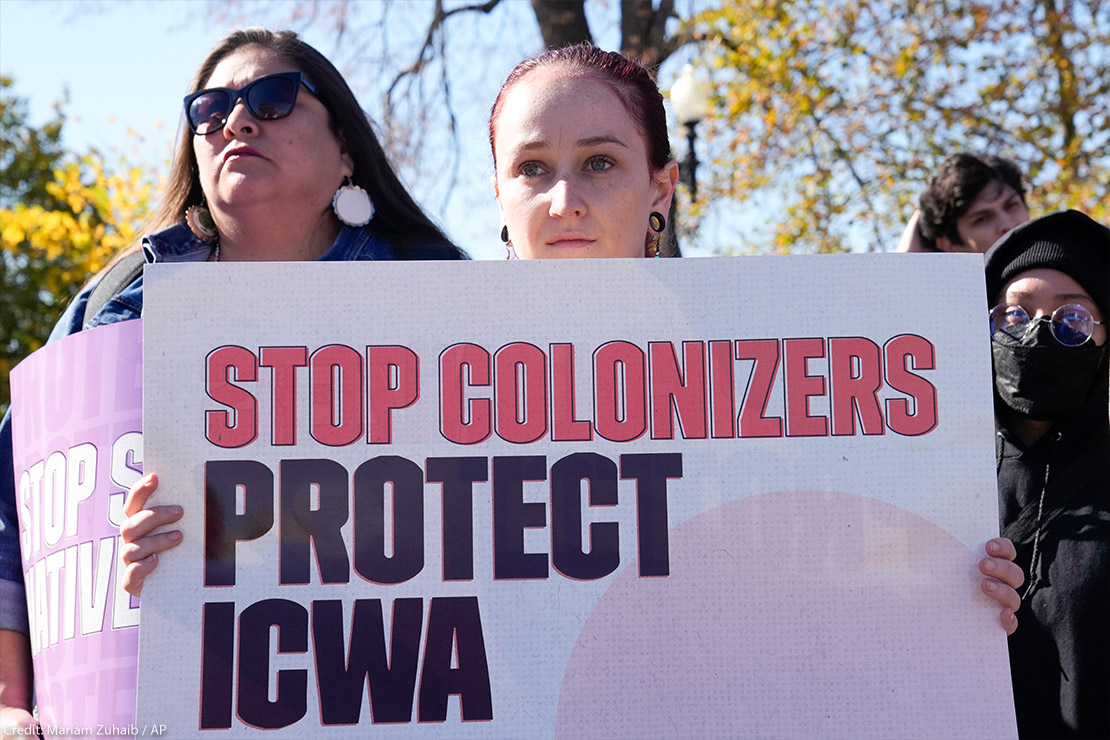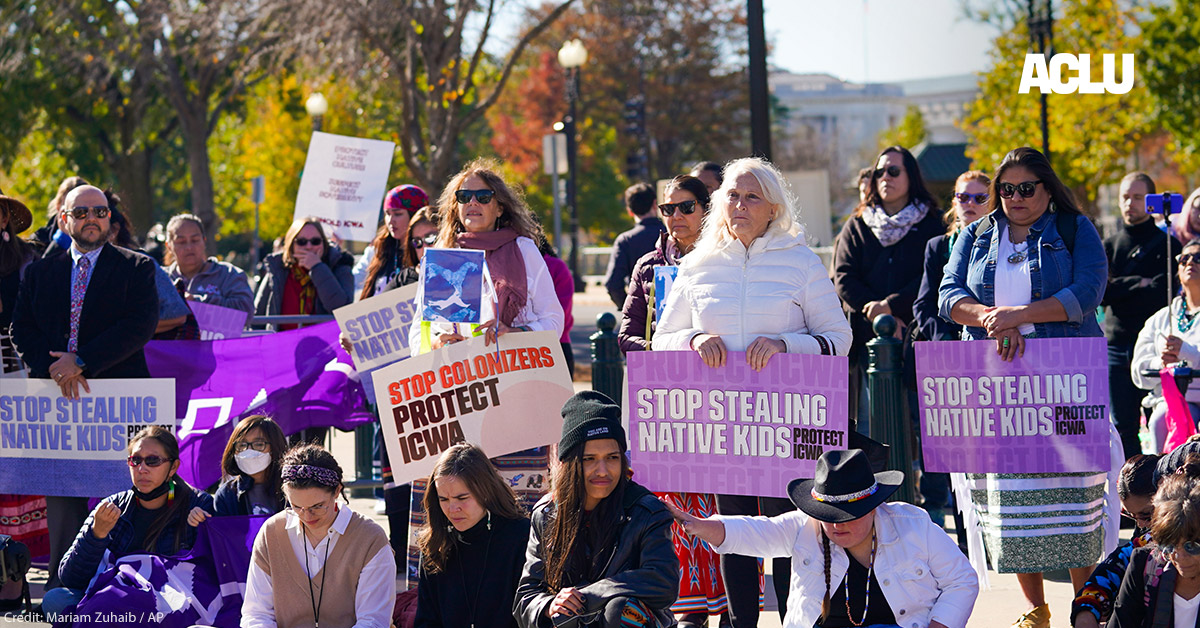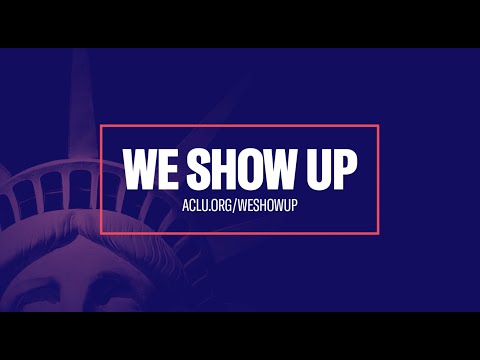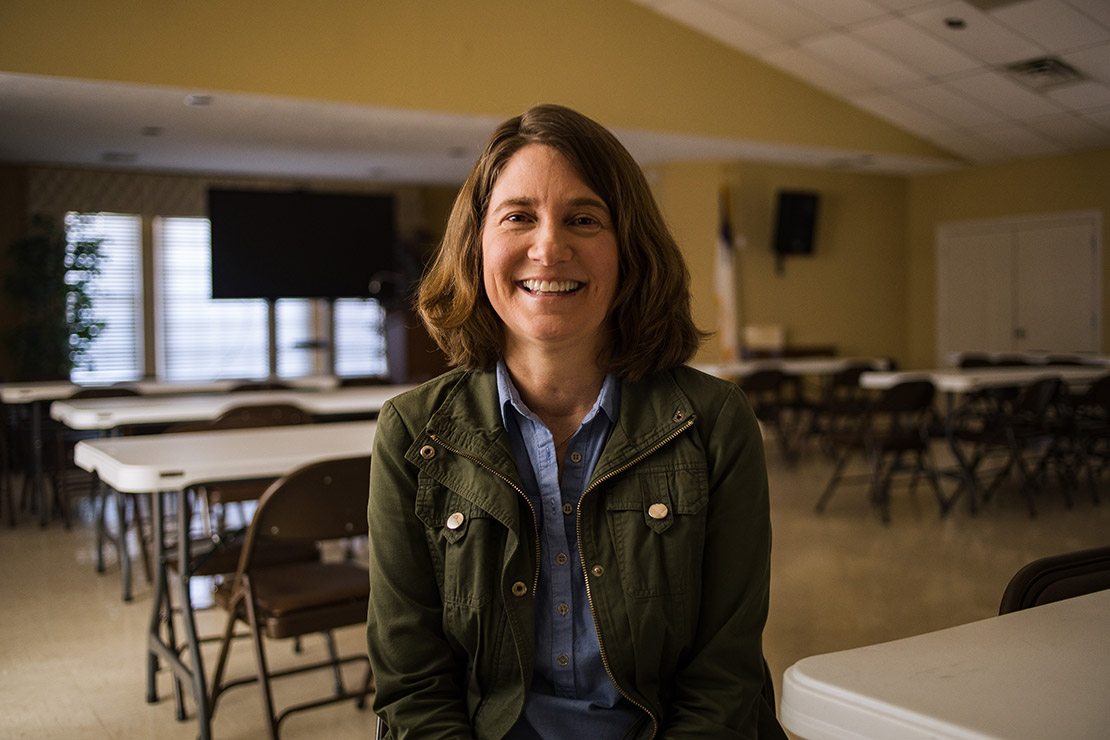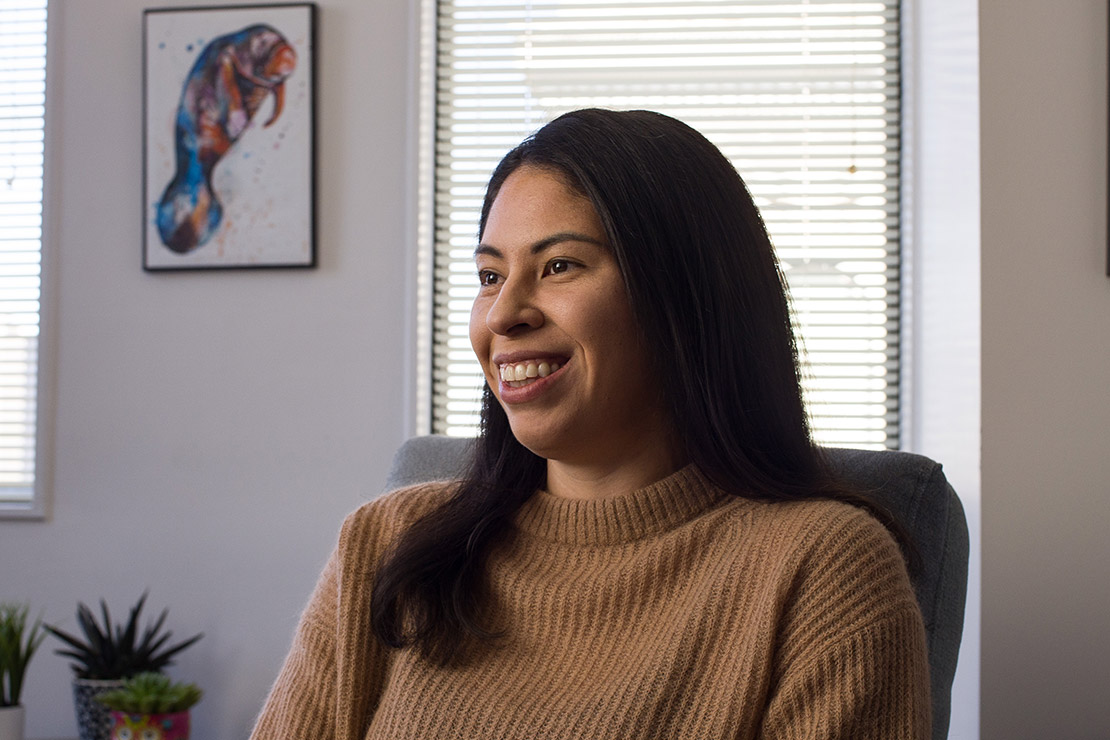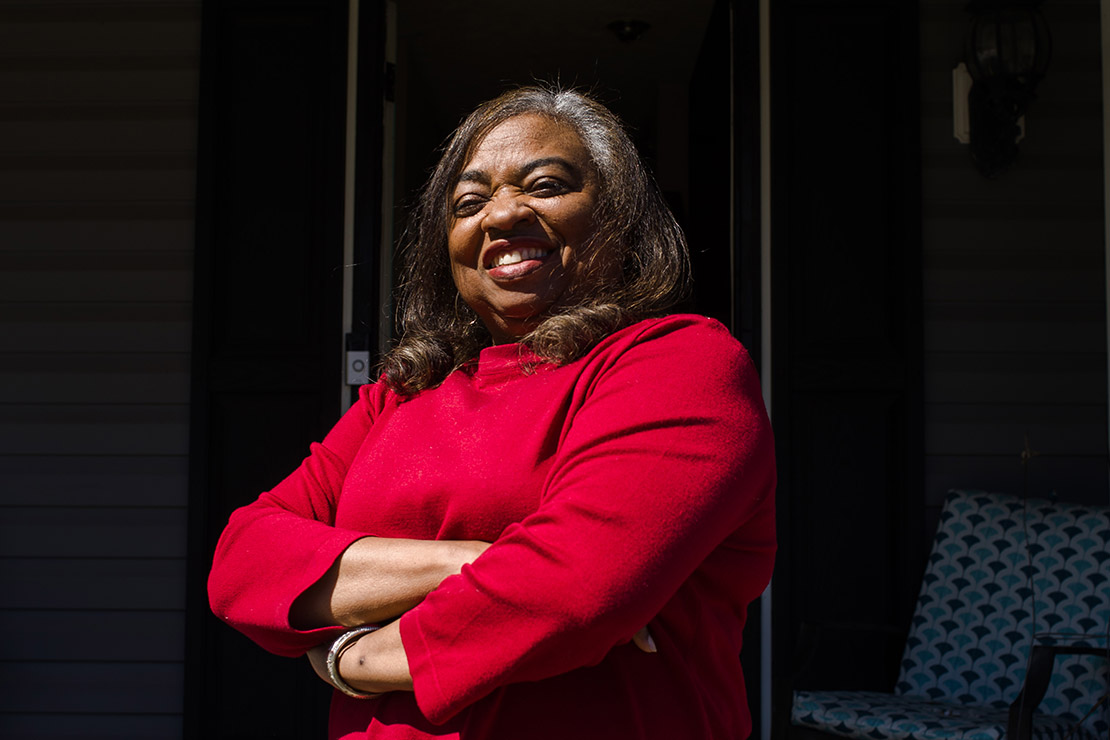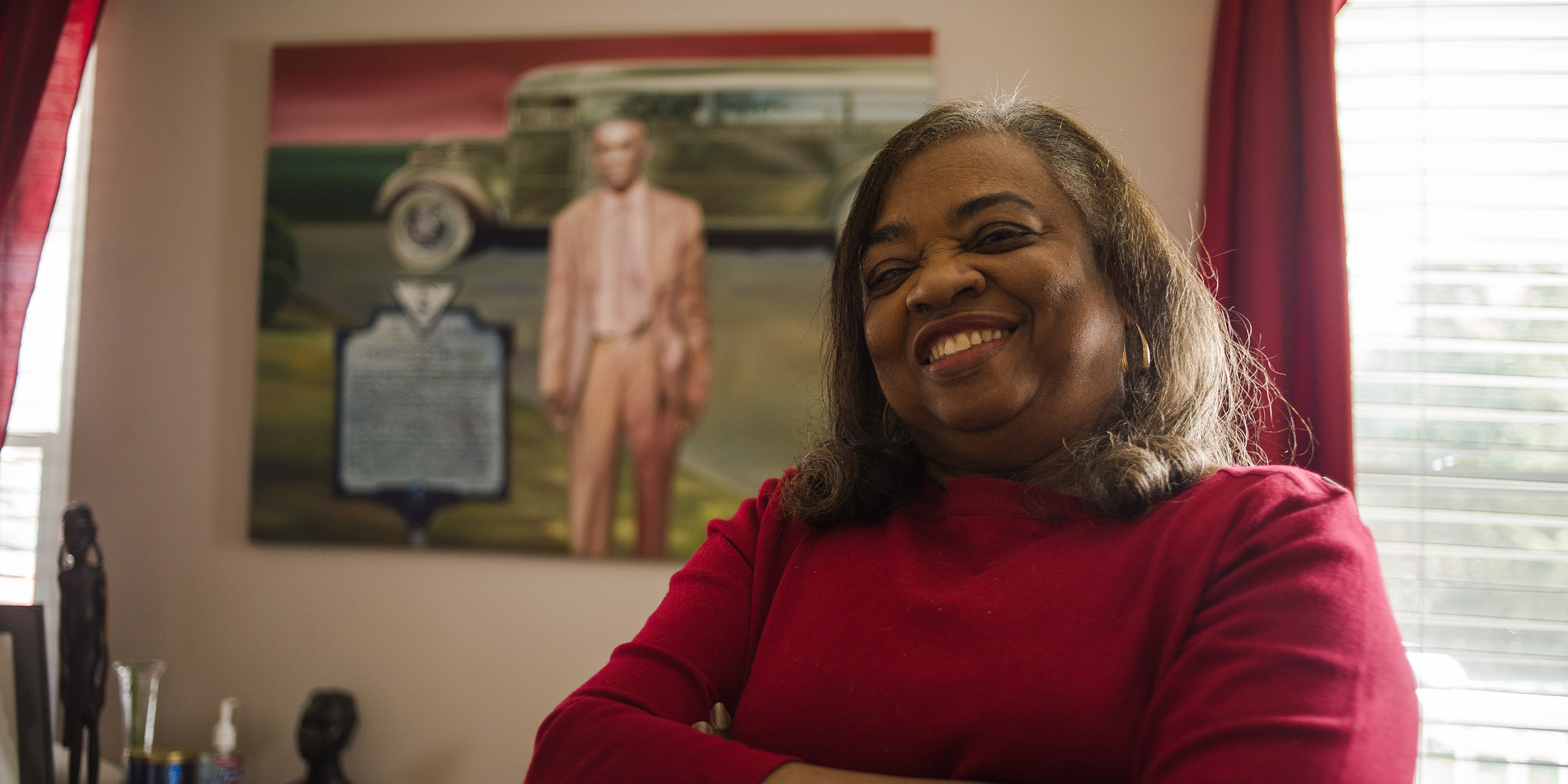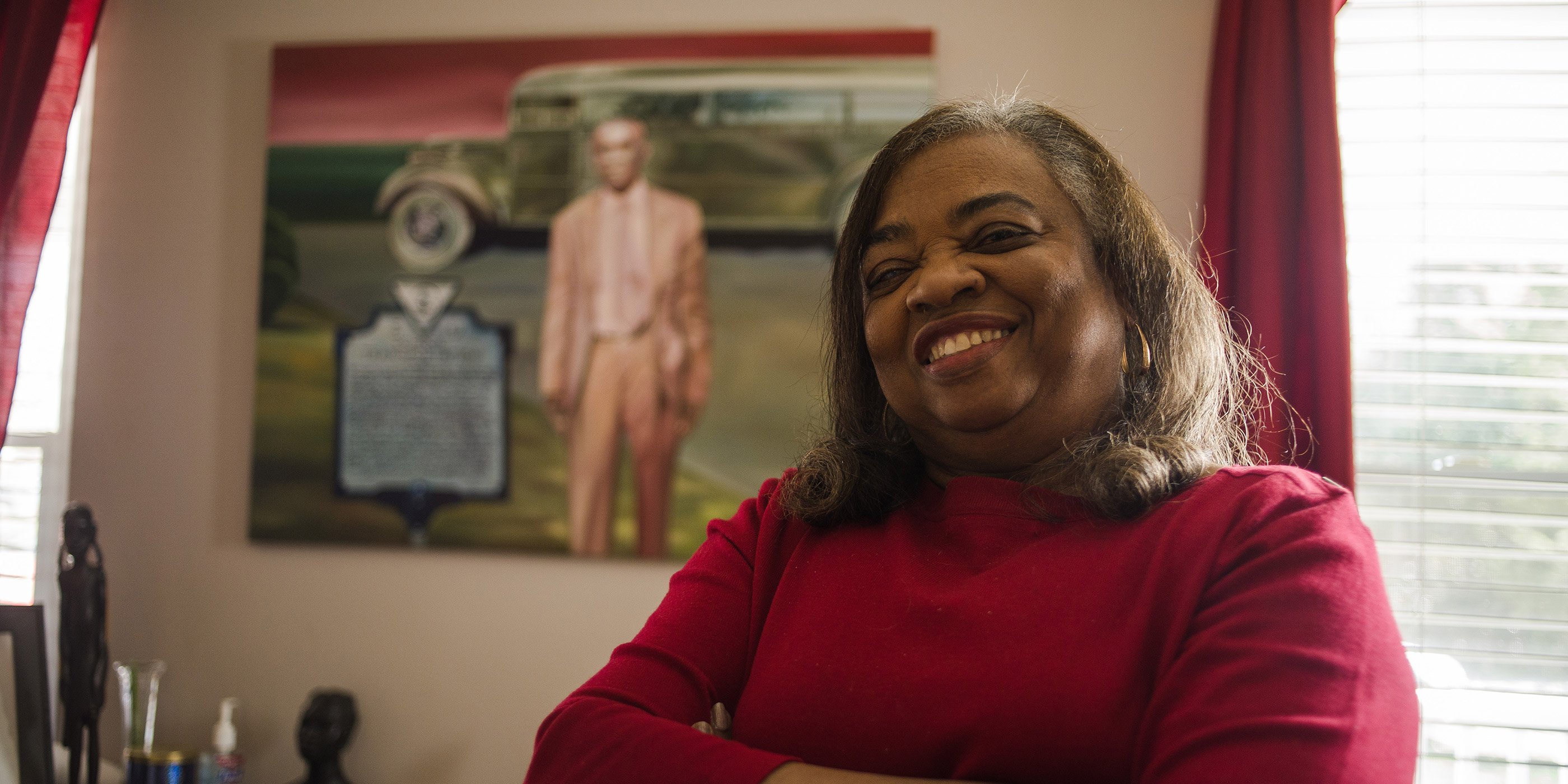Eva Lopez, Communications Strategist, ACLU
Over the last few years, states across the country have advanced a record number of bills attacking LGBTQ rights and targeting transgender youth in particular. In addition to restricting access to gender-affirming care, state lawmakers and school boards nationwide are trying to prevent trans students from participating in school activities like sports, censoring in-school discussions of LGBTQ people and issues, and preventing trans students from having an inclusive and safe learning environment.
Through advocacy, litigation, and lobbying, we’re working alongside our partners to push back against these discriminatory policies and all out attacks on transgender youth. Here, three advocates discuss their experience working alongside the ACLU and community partners to fight back against a school board policy that discriminates against transgender students in Hanover County, Virginia, and why we must keep showing up to defend trans rights.
These interviews have been edited and condensed for clarity.
“My child came out four years ago as transgender. And Hanover County has not been such a great place to raise a transgender child.
“It doesn’t take much to convince our loving family that loving your kid is the path. I think what turned on the activist in me is realizing how my son was being treated in school, and it just isn’t okay.
“As soon as the school year started, every school district in Virginia was supposed to adopt model policies that would protect transgender kids at the schools, and Hanover did not. The school board and their policies provide a real barrier for our child to be included at school. Our child wasn’t allowed to use the appropriate restroom. It’s been difficult to get him referred to by the appropriate name. People often think that the only issue trans kids have in school is restrooms, and that is just the most visible one. There’s lots of other things to attend to to make a trans kid’s day at school as dignified as possible — names, pronouns, activities, gendered activities, gendered instruction, even dress codes that are gendered. All of that stuff impacts trans kids.
People often think that the only issue trans kids have in school is restrooms, and that is just the most visible one.
“The school board was explicitly resisting the law that was requiring them to support trans kids. So we contacted the ACLU of Virginia and told our story. And we knew we needed to be speaking up and showing up at the school board meetings.
“One of the first school board meetings I went to, I was sitting in the audience and looking around the room and wondering how many of these people are in support of trans kids. There were about 15 speakers that day. I was the only person who spoke about our experience of having a trans kid in the school.
“Making our story public to the community has inspired a lot of other community members with similar stories to come forward and do the same thing. It’s been a domino effect in the community and has exploded into a movement in Hanover of people who are supporting trans kids. More and more people are showing up to school board meetings and telling their stories, trans students are showing up and telling their stories. Allies, our kids, best friends, parents are all showing up.
“I would love to see Hanover County and every other school district adopt model policies that are supportive of trans kids. My son asked ‘Mom, am I really worth this?’ And I was stunned. My response was, ‘Of course, you are worth this. All of the trans kids in Hanover are worth this.’”
Breanna Diaz (she/they)
Legislative and policy counsel at the ACLU of Virginia
“I came out at 13 years old when I was still living in Dallas, Texas. At the time, I didn’t have a family or school that really supported who I am and provided me with an environment that had my best interests in mind. I experienced a lot of harassment, discrimination, and stigma, and so I think that is what spurred my interest in advocacy and led me to the path where I am now in my role at the ACLU.
“In Virginia, we passed a law that requires all 131 public schools to adopt model policies on the treatment of transgender youth. These model policies help create school environments that are safe, inclusive, and affirming of trans and nonbinary students. They were crafted by parents, trans youth and students, and other stakeholders. Unfortunately, Hanover County school board decided not to adopt these comprehensive model policies. Instead, they chose to adopt a patchwork of policies that, for example, did not allow trans youth to access bathrooms consistent with their gender identity.
“We had five families in Hanover reach out to us and ask us to intervene to fight for their children’s legal rights. And so the ACLU of Virginia entered into litigation against Hanover County school board representing those five families. But we knew that litigation wasn’t enough to stem the tide of anti-trans policies, including those coming out of Hanover. The Commonwealth told school boards to respect trans students. Yet, some school boards decided meeting their legal and moral obligation to create safe school environments for all, including trans youth, was not a priority. We knew we needed to organize directly with trans youth, supportive parents, and allies. We knew we needed to provide training and strategize with community members, professional associations, and LGBTQ+ rights organizations on how best to oppose these horrendous, anti-trans policies.
We knew we needed to organize directly with trans youth, supportive parents, and allies.
“The ACLU of Virginia is working to build communities and pass policies at the school board level that create inclusive and affirming environments where people like me and kids today who are queer and trans don’t have to experience discrimination and harassment.
“The ACLU has a long history of fighting for LGBTQ rights, whether it’s marriage equality to schools, to now fights at a school board level. We have always shown up to fight for our basic rights and dignity.”
“Right now, one of our biggest battles is fighting in Hanover for our transgender students. Our students spend most of their day in our schools. It has to be a safe place for them, but right now we do not feel that it is.
“Our kids say, “I am transgender. I simply want to be treated like anyone else.” My grandson, Kaiden, has said to me, “Why don’t they just leave them alone? We don’t have a problem with transgender kids. Why do they?” He’s 15 and has more wisdom than our school board.
“Our transgender kids just want to be accepted for who they are in our schools and they want to be treated equally in our schools like everyone else. But the school board isn’t making this possible. The school board says you must use the bathroom of your “birth status,” but the kids want to be able to use a bathroom that identifies with their current gender and with who they are.
Our kids say, “I am transgender. I simply want to be treated like anyone else.”
“Our fight is to make sure that they have the same rights as anyone else attending school. We have to attend school board meetings. We have to pull together marches and protest and letter writing campaigns for our trans kids.
“We are blessed to have many parents who are supportive of their kids. We have worked with Equality Virginia, the ACLU, and the Jewish Community Federation on this issue because working together is what we find works in Hanover County. I love the fact that we as a people are coming together, working with an intersectionality of everybody coming together. One group fighting alone is not the answer because we’re all really fighting for the same things — the equity and equality of all people.”
https://www.aclu.org/news/lgbtq-rights/showing-up-for-trans-students-in-virginia
With parents, trans youth, allies, and partners, the ACLU of Virginia pushed back against a discriminatory school board policy.

